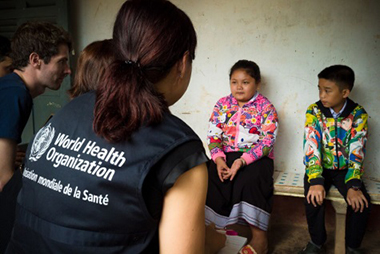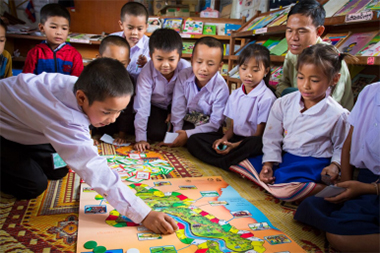Neglected tropical diseases (NTDs) are extensively transmitted in Laos, with approximately 30% of the population at risk of soil-transmitted helminth (STH) infections, and 50% at risk of opisthorchiasis viverini (liver fluke infection).
Under the UN Joint Program by the Grand Duchy of Luxembourg, nationwide support for school deworming programme protect all school-aged children against STH and opisthorchiasis viverini. The programme has shown positive results by steadily reducing the prevalence and intensity of STH infections in targeted children.
Since 2007, the Ministry of Health and Ministry of Education has collaborated on school deworming program, which takes place twice a year. Dr Khampheng Lekhounnam, a medical doctor for 20 years has been supporting the school deworming program in Phonsaly Province and he has observed almost no adverse event after taking the deworming tablet.
He said that in the past 8 years since the implementation of this program, fewer children are now sick with parasites and cannot come to school. Beside more regular school attendances, they are better nourished as well.

“Worms can live inside our bodies and they make us feel ill or weak. They cause stomach aches, and fever. Deworming helps to make us healthy” we have to observe our poo tonight or tomorrow to see if there are worms and to report to the teacher. They have to remember to wash their hands with soap and water after poo.” said Phonesay.

